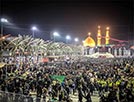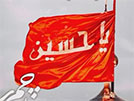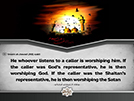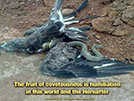Amr bil Ma’rūf and Nahy Anil Munkar
- Details
- Hits: 2351
Amr bil Ma’rÅ«f and Nahy Anil Munkar
Amr bil Ma’rÅ«f denotes urging others to perform good deeds and Nahy Anil Munkar implies restraining them from sins. Like the previous obligations these are also an article of faith and an important duty incumbent on Muslims. They are components of Jihad. Its practice is greatly emphasized in many ayats and traditions and its neglect is severely criticised. Some of the ayats are mentioned below.
“And from among you there should be a party who invite to good and enjoin what is right and forbid the wrong and these it is that shall be successful.”
(Surah Ä€li- ‘Imran 3: 104)
In this ayat Allah (S.w.T.) has informed us the obligatory nature of Amr bil Ma’rÅ«f and Nahy Anil Munkar with emphasis. At another place in the same chapter the Lord Almighty remarks,
“You are the best of the nations raised up for (the benefit of) men; you enjoin what is right and forbid the wrong and believe in Allah;”
(Surah Ä€li- ‘Imran 3:110)
Those who neglect Nahy Anil Munkar have been severely criticised in the following verse of Surah al-MÄ’ida,
“Why do not the learned men and the doctors of law prohibit them from their speaking of what is sinful and their eating of what is unlawfully acquired? Certainly evil is that which they work.”
(Surah al-MÄ’ida 5:63)
In the story of the People of Sabt, Allah the High and Mighty says,
“And ask them about the town which stood by the sea; when they exceeded the limits of the Sabbath, when their fish came to them on the day of their Sabbath, appearing on the surface of the water, and on the day on which they did not keep the Sabbath they did not come to them; thus did We try them because they transgressed. And when a party of them said: Why do you admonish a people whom Allah would destroy or whom He would chastise with a severe chastisement? They said: To be free from blame before your Lord, and that haply they may guard (against evil). So when they neglected what they had been reminded of, We delivered those who forbade evil and We overtook those who were unjust with an evil chastisement because they transgressed. Therefore when they revoltingly persisted in what they had been forbidden, We said to them: Be (as) apes, despised and hated.”
(Surah al-Ar’Äf 7:163-166)
It is clear from these ayats that Amr Bil Ma’rÅ«f and Nahy Anil Munkar are obligatory duties which if not fulfilled, invite divine chastisement. Those who neglect Nahy Anil Munkar are as guilty as those who commit sins and deserve equal punishment.
“Those who believed from among the children of Israel were cursed by the tongue of DawÅ«d and Isa, son of Marium, this was because they disobeyed and used to exceed the limit.
They used not to forbid each other the hateful things (which) they did; certainly evil was that which they did.”
(Surah al-MÄ’ida 5: 78-79)
This ayat has severely criticized those who neglect Nahy Anil Munkar. Imam Sadiq (a.s.) says that the people who earned the curse of Allah’s messengers because they did not forbid evil and who were subsequently transformed into apes were those who never befriended the wrong doers or attend their assemblies, but when met those people they were friendly and affectionate towards them. (Wasa’il ul-Shia)











